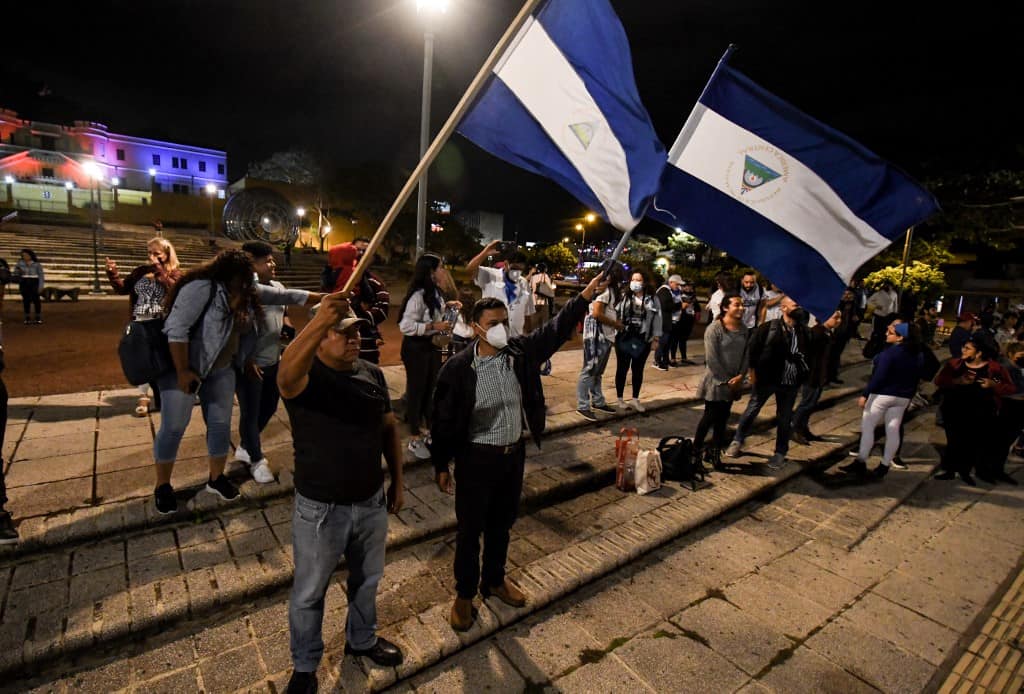Some 300 Nicaraguans gathered Tuesday night at the Plaza de la Democracia, in San Jose, Costa Rica, on the four-year anniversary of protests against the government of Daniel Ortega.
On April 18, 2018, massive demonstrations were held against a health care reform that later spread towards the government.
The country was paralyzed for five months and the protests were repressed with a toll of 355 dead and thousands injured and exiled, according to the Inter-American Commission on Human Rights (IACHR).
“These activities are to show the State of Nicaragua that we remain firm for justice, freedom and a true democracy for Nicaraguans,” said Susana López, mother of Gerald Vásquez, killed on July 14, 2018 in a confrontation resulting from the social movement.
This Tuesday, like many of her compatriots in San José, López wore a shirt alluding to their demands. Others carried Nicaraguan flags and black ribbons in honor of the deceased, of whom they carried photographs. There was a minute of silence.
“Here [in Costa Rica] we can continue to raise our voices. They have wanted to silence us, but they are not going to do it. Since 2018 we have been besieged, but we are going to continue forward wherever we are,” added López, who has been in exile for 11 months.
Costa Rica is the country that received the most Nicaraguans since 2018, at least 100,000, according to the Directorate of Migration and Aliens.
At the vigil there was also dancing and chants of “Long live free Nicaragua!”.
Edwin Juarez, 30, also left his country eight months ago “because of threats from the Ortega government.”
“Here I work running errands, cleaning houses. It has been a hard exile, but peaceful, because where I was I couldn’t even leave my house, I was besieged by paramilitaries and police,” he said. “Coming to this activity is a form of resistance,” he added.
Ortega, a 76-year-old former guerrilla who has held power since 2007, won a fourth term in November elections, with most of his rivals imprisoned and accused of plotting against his government with help from Washington.
For the president, the 2018 protests were an attempted coup d’état that he tried to replicate before the elections in 2021. According to the opposition and the international community, the arrests were part of a strategy to remain in power.






